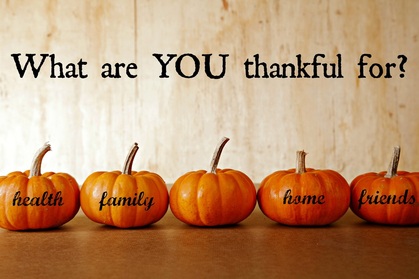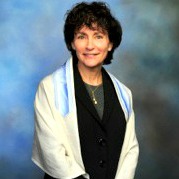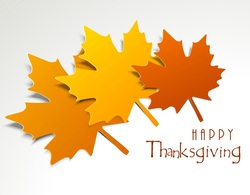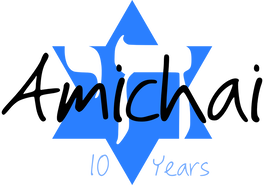TO BE JEWISH AND AMERICAN: WE GIVE THANKS
|
When we take the blessings of our lives for granted it means we are not moved by them; we experience them as our norm and we naturally assume this is the way it is and is supposed to be. But, to be Jewish and free is a blessing beyond blessings; our freedom is something Jews have fought for and died fighting for over the millennia, and something our history tells us we have rarely had the opportunity to take for granted.
As Americans, we are both Jewish Americans and American Jews. We are not guests in this country; we are American citizens, though as we consider the plight of so many newly arrived and often undocumented immigrants to our country, we should be reminded of the struggles our ancestors suffered through to reach our American shores. To be an immigrant in a new land is to experience profound daily challenges from learning a new language to finding employment, to Americanizing and hoping our children will be presented with opportunities we as immigrants never enjoyed in the lands we left. We have all benefitted enormously from the sacrifices our ancestors made as immigrants in America, and every one of us has a personal story to tell deeply moving us and connecting us to them. |
The Torah reminds us not once, not twice, but 36 times to be kind to the stranger because we were once strangers in a strange land. To be Jewish means we each carry within us an historic memory of a people, all of its vicissitudes, all of its trials and tribulations, all of its joys. We remember what it felt like to be enslaved in Egypt; we remember alongside Avraham what it must have felt like to be a resident alien approaching, at his mercy, Prince Ephron the Hittite and asking to purchase a plot of land in order to bury his beloved wife, Sarah (Genesis 23). We remember what it is like to not belong; to feel and be perceived as an outsider. We remember that it doesn’t feel good. As Jews, our DNA is encoded with empathy. This is who we are and so often we are called upon to remind others to be kind because we remember what it feels like to be treated as the outsider.
And, while, we haven’t always been fully accepted by our fellow citizens, while our nation has gone through populist episodes of anti-Semitism often, even today, cloaked in many disguises, the fact is we helped to establish this nation and to reinforce allegiance to it, fighting for our liberty and system of government from the American Revolutionary War, to the Civil War, to our recent wars in Afghanistan and Iraq and every war in-between.
Sometimes we hear from our more Orthodox circles that Thanksgiving is a secular, non-Jewish holiday and should not be observed by religious Jews. I disagree. Thanksgiving is a national holiday for all its citizens belonging to each of us equally. And, it’s not such a stretch for us to experience. After all, gratitude is not a new concept to the Jewish people. Our daily prayers are replete with expressions of gratitude to God and for the many blessings of our lives.
We may understandably look around at the world today and at our nation and wonder with skepticism where we are headed. An imperial Presidency? A gridlocked Congress? Democrat? Republican? Governmental incursions into individual privacy? Campaign finance which imbalances the playing field? Wherever we come out in response to those queries and many others, it would behoove us to remember that however imperfect our government may be, however further from its ideals we may feel it is trending, we are empowered by our Constitution to speak out publicly and to empower ourselves to do something about it. This is a blessing we can never afford to take for granted. So, during this Thanksgiving, while enveloped in the warmth of our families and homes, as we freely criticize the leaders we have the right to elect, we might be well advised to appreciate our Constitutionally mandated inalienable rights which enable us to even question and criticize them in the first place.
And, while, we haven’t always been fully accepted by our fellow citizens, while our nation has gone through populist episodes of anti-Semitism often, even today, cloaked in many disguises, the fact is we helped to establish this nation and to reinforce allegiance to it, fighting for our liberty and system of government from the American Revolutionary War, to the Civil War, to our recent wars in Afghanistan and Iraq and every war in-between.
Sometimes we hear from our more Orthodox circles that Thanksgiving is a secular, non-Jewish holiday and should not be observed by religious Jews. I disagree. Thanksgiving is a national holiday for all its citizens belonging to each of us equally. And, it’s not such a stretch for us to experience. After all, gratitude is not a new concept to the Jewish people. Our daily prayers are replete with expressions of gratitude to God and for the many blessings of our lives.
We may understandably look around at the world today and at our nation and wonder with skepticism where we are headed. An imperial Presidency? A gridlocked Congress? Democrat? Republican? Governmental incursions into individual privacy? Campaign finance which imbalances the playing field? Wherever we come out in response to those queries and many others, it would behoove us to remember that however imperfect our government may be, however further from its ideals we may feel it is trending, we are empowered by our Constitution to speak out publicly and to empower ourselves to do something about it. This is a blessing we can never afford to take for granted. So, during this Thanksgiving, while enveloped in the warmth of our families and homes, as we freely criticize the leaders we have the right to elect, we might be well advised to appreciate our Constitutionally mandated inalienable rights which enable us to even question and criticize them in the first place.
|
During this Thanksgiving may we be filled with gratitude for the many blessings of our lives, not the least of which is that we are both Jewish and American. May we give thanks for our liberties, for feeling compassion and pain for others’ sufferings, to understand that we need to act and do whatever is reasonably required of us to bring healing to the world and to our nation, and to live with a consciousness that it is good for us to live with a sense of indebtedness and gratitude. God’s blessings are indeed many. Hodu Ladonai Kee Tov, Kee L’Olam Chasdoe—Give thanks to God for God is good.
Keyn Yehi ratzon. So may it be God’s will. Amen. Warmly, Rabbi Debra Nesselson Thanksgiving, 2014 |




